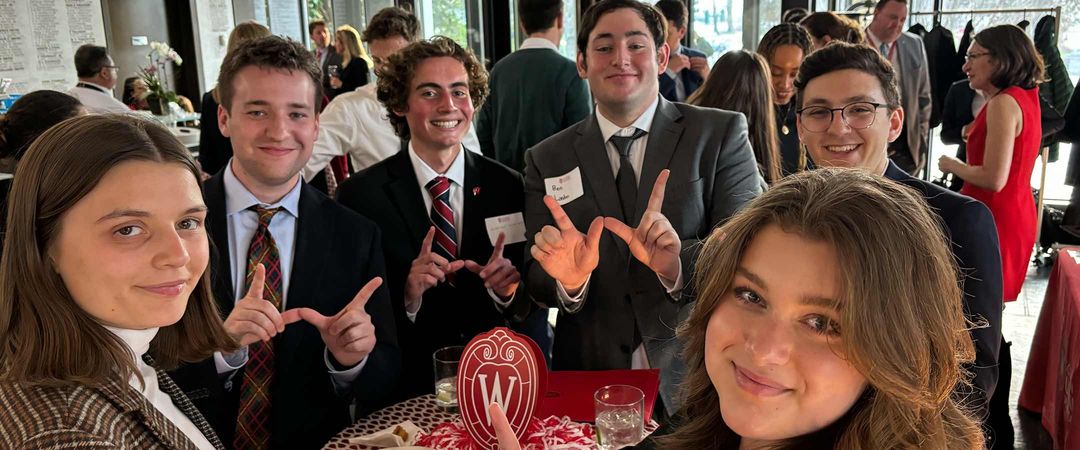2019 was a year of monumental gains, assuring massive strides for the University of Wisconsin-Madison. We are excited to share our successes with you and to keep moving forward in 2020 as we did in 2019.
In March and April, we hosted UW-Madison Days in Washington, D.C., and Madison, Wisconsin. Successful turnout bolstered the voices of Badger advocates from all corners of the nation, campaigning for the issues that they held close to them. In 2020, we strive to elevate your voices at UW-Madison Days, encouraging you to tell your story and share the moments you hold close.
In July, Governor Tony Evers signed the 2019-21 state budget into law. The budget included several initiatives for the University, such as millions of dollars of funding for need-based grants for undergraduates and classes in fields such as nursing, engineering, computer science, and business. The state budget also included room for several building projects, enhancing the experiences of students. Among these construction projects were the renovations to the School of Veterinary Medicine, doubling the size of the animal hospital, and increasing the size of several laboratory spaces.
Alumni advocates played a crucial role in achieving a positive budget outcome. Over 1,000 emails and messages were sent by alumni to the Governor and state legislators this year. More than 1,500 UW-Madison volunteer leaders and members of campus boards and committees signed petitions in support of UW priorities. And, hundreds of alumni participated in in-person meetings and via a tele-town hall event, demonstrating the commitment of alumni to their university.
Throughout the year, we advocated on behalf of several campus groups and colleges, constructing many petitions to legislators on behalf of these noteworthy causes. Among these were Assembly Bill 372 and Senate Bill 446. Assembly Bill 372 allowed the possibility of pharmacy students to operate on the same calendar as other health professional students, giving them more time to complete professional opportunities and prepare them for clinical practice. Senate Bill 446 was drafted to provide funding for the Missing in Action Recovery and Identification Program, an interdisciplinary collaboration between faculty and students to find the remains of missing World War II veterans. These bills have been introduced in the state Assembly and Senate, respectively.
The University remains at the top of the rankings for academics, research, and contributions to the state and local economy. The success we’ve shared in 2019 and will continue to see in 2020 wouldn’t be possible without our passionate advocates, and for that, we can’t help but say thank you.
To keep advocating for the UW, check out our Facebook and website.



